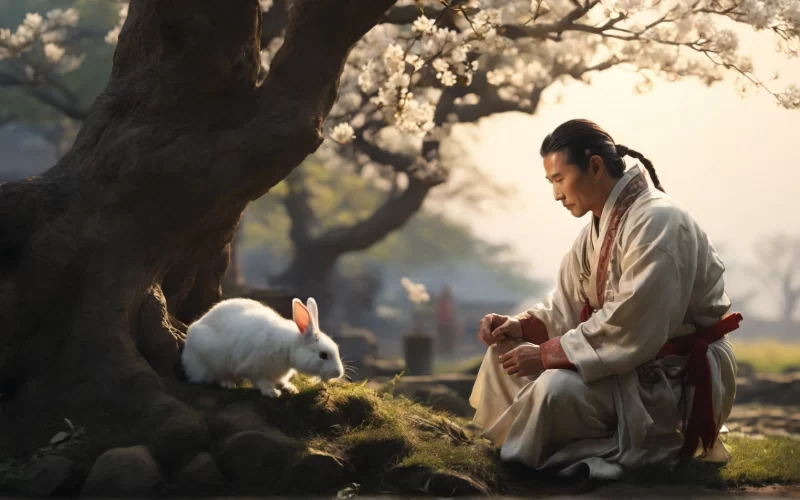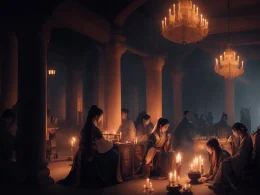Idiom Explanation:
All sorts of feelings well up in one's heart, a myriad of feelings mingled together, describing the complex feelings and emotions.
Pronunciation:
百感交集
bǎi gǎn jiāo jí
Origin:
南朝宋·刘义庆《世说新语·言语》:“见此茫茫,不觉百端交集,苟未免有情,亦复谁能遣此。”
Story:
Wei Jie was a native of Anyi (north of present-day Xia County, Shanxi) in Hedong, ancient China. Wei Jie came from a famous family. His grandfather Wei Jie was a powerful minister of the Western Jin Dynasty and was featured in the "Romance of the Three Kingdoms" for having killed Deng Ai. When Wei Jie was still a child, he was already beautiful and beautiful. When the young master roamed around downtown Luoyang in an open carriage, people who saw him exclaimed that the boy was really a "jade man" and asked their friends and relatives to come and watch him in the lane, and according to the History of Jin, "The people who watched him fell all over." After he became an adult, he was praised, some said he was as round as jade, and others said that when walking with him, it was as if there was a pearl around him, reflecting himself like a pig's head.
During the reign of Emperor Huai of Jin, the beautiful man Wei Jie was the prince's washing horse (the prince's retainer). He was well read in the I Ching and Lao Tzu, and his speech was often very profound. Due to the internal conflicts of the ruling group and the "Eight Kings' Rebellion" which lasted for sixteen years, the country and the people were in deep disaster. The Xiongnu nobles in the north, Liu Yu, took the opportunity to invade. In the third year of Emperor Huaijia's reign (309 A.D.), the Xiongnu army drove into Luoyang, the capital of Western Jin, twice, but was repulsed by the Western Jin army.
Faced with the turbulent times, Wei Jie was determined to move his family to the south. His brother held an official position in the court, and his mother could not bear to be separated from him, but Wei Jie persuaded her to put the family's plans first, and finally convinced her to agree to move south. In the fourth year of Yongjia, Wei Jie said goodbye to his brother and left Luoyang, taking his mother and wife south with him. His brother refused to go and later died at the hands of the Xiongnu.
Wei Jie, who was always weak and sickly, suffered a lot of hardships during the long journey, eating the wind and drinking the dew. When he was about to cross the Yangtze River, his appearance was haggard. He said to the people around him, "When I saw the white water of the river, I couldn't help but have mixed feelings in my heart. As long as a person has feelings, who can dispel these thousands of thoughts and emotions!"
Due to social unrest, Wei Jie was not able to live and work in peace and happiness even when he moved south. Soon after crossing the river, his wife, Le, died from the exhaustion of the journey. He arrived in Jiankang (now Nanjing, Jiangsu). Wei Jie had an itchy tongue, and when he had the chance, he was sure to say a few words, to the amazement of his audience. Wang Cheng (nicknamed Pingzi), a master of clear talk, was very impressed. It is said that "Wei Jie talks about the Tao, and Ping Zi is the best." Unfortunately, Wei Jie, who was very sickly, died in the sixth year of Yongjia (312 AD), before he reached the age of thirty.
Similar Idioms:
- 感慨万千
- 五味杂陈












